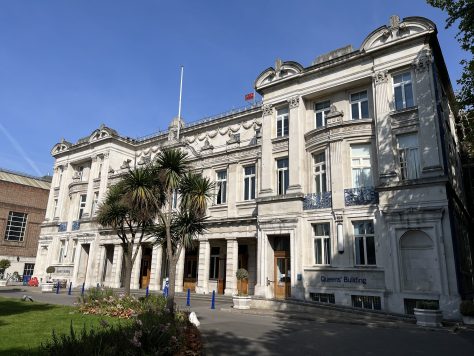I was away the whole week, firstly in Manchester for ALT-C and then Leamington Spa for our away day. Of course the end of this week was dominated by the death of Queen Elizabeth II.
On Monday I headed off to Manchester, stopping at our Bristol office to pick some stuff up, as well as participate in an online meeting. ALT-C was kicking off at 9am on Tuesday, so wanted to be in Manchester rather than travelling and missing the start of the conference, especially as I knew I would miss most of the sessions on Thursday.
I planned some travel, as I am in Dublin next week. The last time I had the opportunity to visit Dublin was in 2016 when I was a keynote speaker at LILAC 2016. I am looking forward to making a return visit.
It was interesting to return to Manchester for ALT-C. The last time I attended ALT-C in person was in 2018, in Manchester. I missed going in 2019 in Edinburgh. I would like to have gone to ALT-C in Edinburgh, alas I didn’t go that year as I needed to be close to home as my youngest started secondary school, and as most people know, transition is a challenging time for all. In the end there were very few issues, but I am glad I stayed behind. Of course, due to the pandemic, the 2020 conference in London was cancelled and the 2021 conference was purely online.
This was a hybrid conference, so the first part of day one was online with the in-person sessions starting after lunch.
I did feel warm and nostalgic attending the conference, it reminded me of conferences past. However, there was still something new about it as well, which I enjoyed.
I am intending to write up my thoughts on the various sessions in future blog posts.
I did one sketch note of a keynote on ethics in educational technology, which was liked by people.
I did have a bit of a challenge as my iPad battery died before I had finished the sketch. So I kept listening and took some photographs on my phone. After the keynote I headed out to Caffé Nero to both refresh myself with a coffee and use their power sockets to charge my iPad. There was certainly a dearth of power sockets in the conference venue.
Leaving Manchester on Thursday I realised how exhausting attending an in-person conference is, I haven’t done this kind of conference for a while.
Pleased to see a tweet about the Social Media In HE Conference. Every year when I see this is happening, I say to myself I should attend that, but then forgot the following year to book. This year I am planning to attend.
We had an away day in Leamington Spa, in which we looked at the current sector landscape, planning for next year and just getting together in-person, which is something we rarely do as a geographically distributed team. It was a lunchtime to lunchtime away day.
After the sessions for that day I went to my room and made a coffee. I was so glad I had taken my coffee machine with me to Manchester and Leamington Spa.
As I read Twitter, it was announced the Queen had died. I went off for a drink before dinner in the bar.
Friday was the second half of our away day and then it was a lengthy journey home.
My top tweet this week was this one.
Well after finding coffee and a power socket I have finished my sketch note of @philosopher1978 Rob Farrow’s excellent keynote at #altc22. pic.twitter.com/mGx7JFZ3Mg
— James Clay (@jamesclay) September 7, 2022













































